

Bladesmithing Materials
The one-stop-shop for bladesmiths to find hard-edge tool steels, guard and pin materials, inspiration from experts, and resources for beginners.
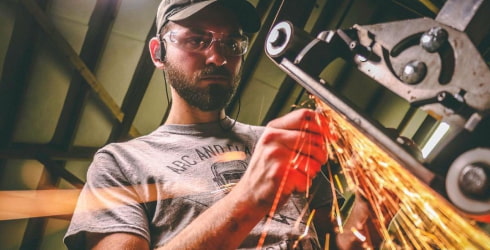
I have used Online Metals for a long time for supplying steels (mostly W1 and O1) and other metals and have always been very impressed with the quality control, consistency of the steels, website ease-of-use, and customer service.”– Curt Haaland, Free Hill Blades
SHOP
Learn
FAQ
If you are bladesmithing using the stock removal method, we recommend 01 tool steel. It is strong, holds an edge, and most importantly it is easy to work with and to harden/temper. If you can't get a hold of any O1 tool steel and you can also use 440C for a stainless option as well.
If you are forging a blade, we recommend W1 tool steel. It is easy to find and easy to work with and handle.
The beauty of stock removal is that you’re not limited to alloys that move well at typical forging temperatures. We recommend O-1, oil-hardening tool steel, as a good choice for stock removal blades. If you are looking towards Stainless Steel for a kitchen knife, we would point you to our 440C as an option. Both options require proper heat treatment for success.
While there is no definitive best steel for forging knives, your choice will depend heavily on your end goal and preferences. Our most popular choices are our tool steels as they are hard and durable with the ability to hold an edge under heat and pressure:
- W1 (water-hardening steel) is great for outdoor knives as it forges easily, is easy to heat-treat, performs well, and finishes nicely.
- 01 (oil-hardening steel) is a general-purpose tool steel and is perfect for knife blades due to its excellent abrasion resistance, toughness, and machinability characteristics.
- A2 (air-hardening steel) is not as hard with lower carbon content but is a fine grain, superior quality steel which has excellent wear and abrasion resistance properties.
- D2 has high-carbon, and high-chromium properties, resulting in high wear and abrasion resistance. When looking for the best steel for a knife, D2 is a great option as it is cheaper than specialty steels and possesses a similar high quality.
First, let’s briefly explain what Damascus steel is. Its most notable features are the contrast of light and dark metal color creating a wavy pattern and its hardness and flexibility. If you’re looking to make a Damascus blade, you’ll need 2 types of steel: high carbon steel and high nickel steel. One of the most common pairings is high carbon steel like 1084/1095 and 15n20 high-nickel steel as they weld well together (We don’t currently offer these steels). An additional method for making Damascus is Canister Damascus, which would require square tube stock, metal powder, and our 52100 Chrome ball bearings.
Heat treating is a part of the knife-making process that is designed to help harden the steel of the blade for use. Most steels provided by Online Metals aren’t pre-hardened, so you will need to have a plan when it comes to heat treatment.



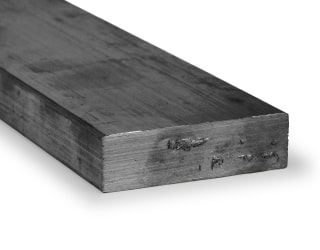
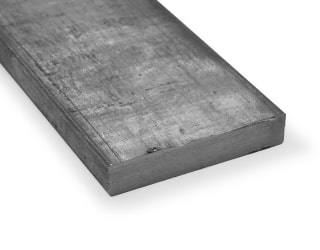
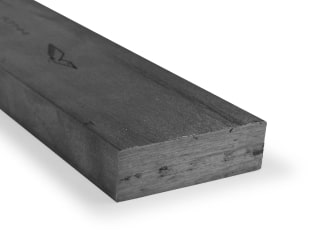
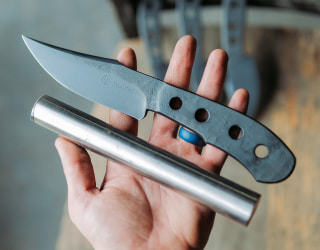
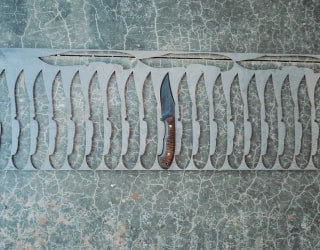
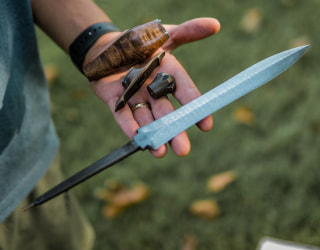
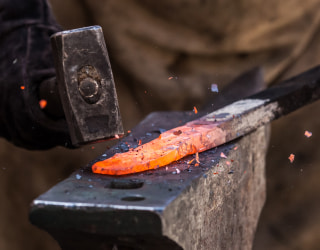
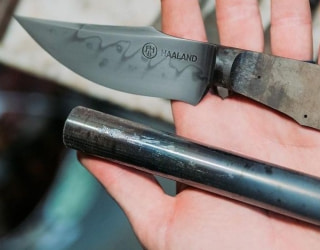
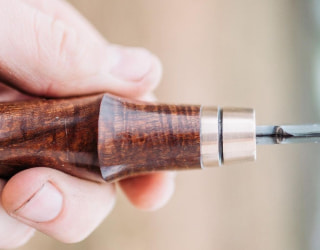


 Continue modifying your quoted cart?
Continue modifying your quoted cart?